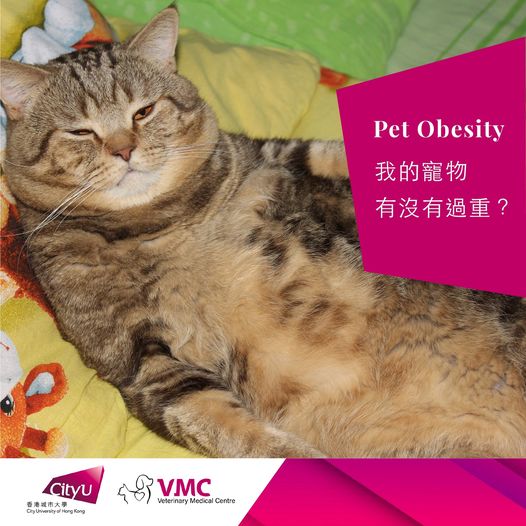
During the COVID-19 pandemic, we are gaining weight as we spent much more time indoor, coupled with more snacking at home. This is the same for our pet - veterinarians across the US are noticing weight gain and higher levels of obesity in pets since the pandemic began. Pets who gained weight might looks extra cute and fluffy, but pet obesity can at the same time increase the risk of having diabetes, kidney disease, high blood pressure, arthritis and cancer if ignored.
Is my pet overweight?
Using body weight as a guide, dogs and cats are considered to be overweight when they weigh 10-20% above their ideal body weight. They are considered obese when they weigh 20% or more above their ideal body weight.
How to identify whether my pet is overweight?
We are familiar with BMI (Body Mass Index) where it is commonly used to identify ideal weight in humans. For pet, we use BCS (Body Condition Score) to evaluate pet’s body fat. You can use it at home to self-check with you pet or take your pet to the clinic for a thorough assessment.
- Check the ribs: Hug and play with your pet, and at the same time observe and feel their ribs, backbone, pelvic bones. Are they stick out? Visible? Or with thin/ thick layer of fat covering? If your pet is in healthy weight, you should easily feel his/her ribs.
- Observe their body from the top: Try to look down on your pet from above, you should see an hourglass figure or an indentation near the waist. If your pet looks like a blimp, probably your pet is overweighted.
- Observe your pet from the side: You should see a slight tuck in or upward slope of the tummy. If the abdomen hangs low and drags near the ground, prob your pet is overweighted.
Weight Chart with scoring
If you would like to go for a more professional assessment, you can bring your pet to the clinic and assessed by veterinarians using BCS ( Body condition score). There are two recognized BCS scales, one ranging from 1-5 and the other from 1-9 depends of veterinarians’ preference. When you determine pet’s ideal body weight, you need to take into consideration of both BCS and actual body weight. It is important to keep an ongoing record to track progress if you would like to control their weight.
Appointment/Enquiry:
3650 3000 (Mon-Sun: 9:00am – 7:00pm)
Address:
G-2/F, Trinity Towers, 339 Lai Chi Kok Road, Sham Shui Po
Online booking for revisit with primary care veterinarians or vaccination:
https://www.cityuvmc.com.hk/en/online-booking